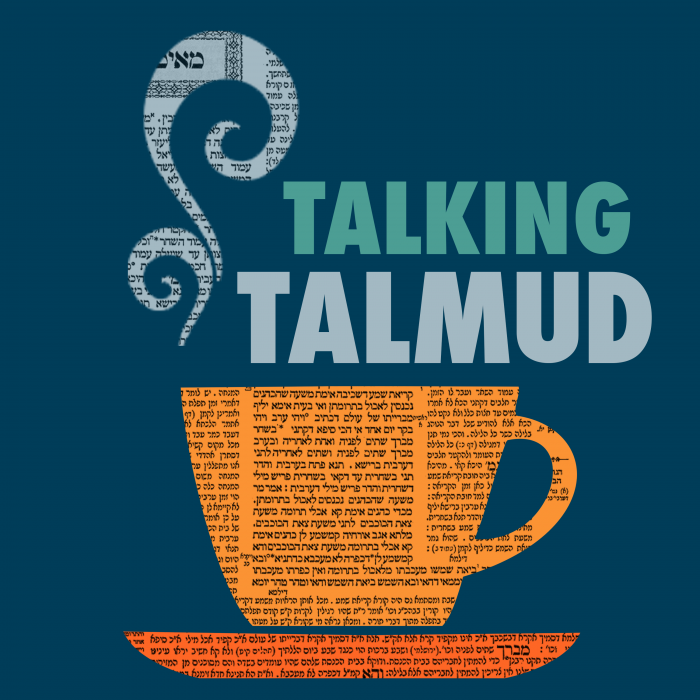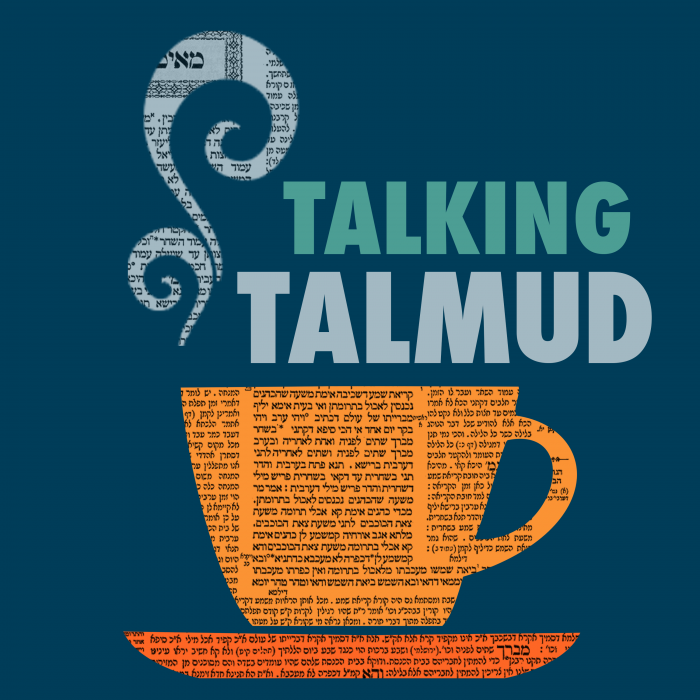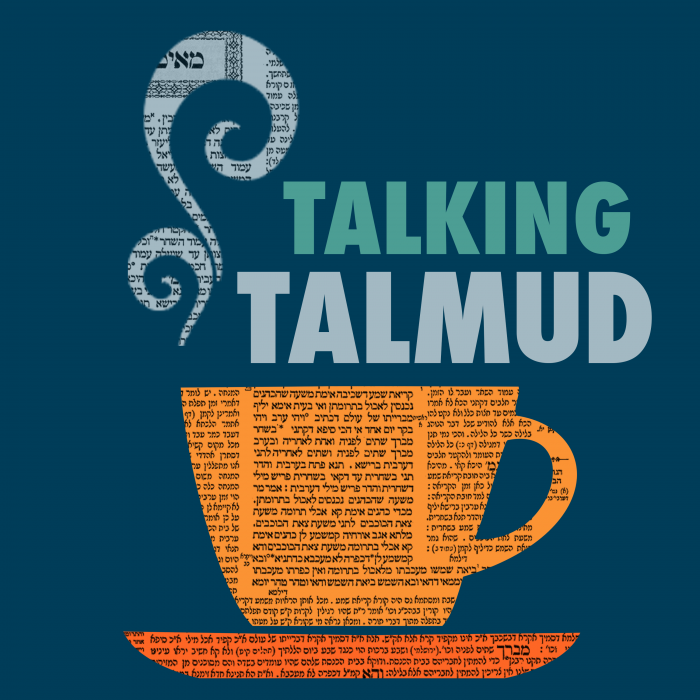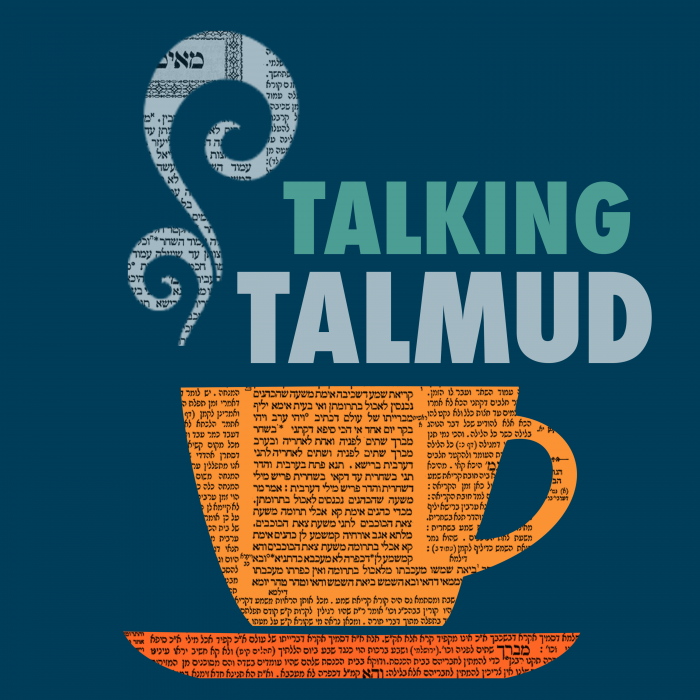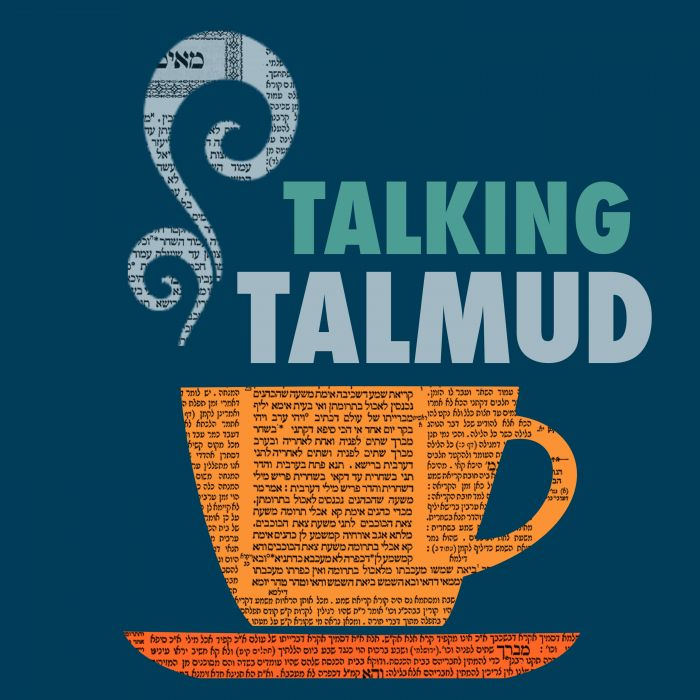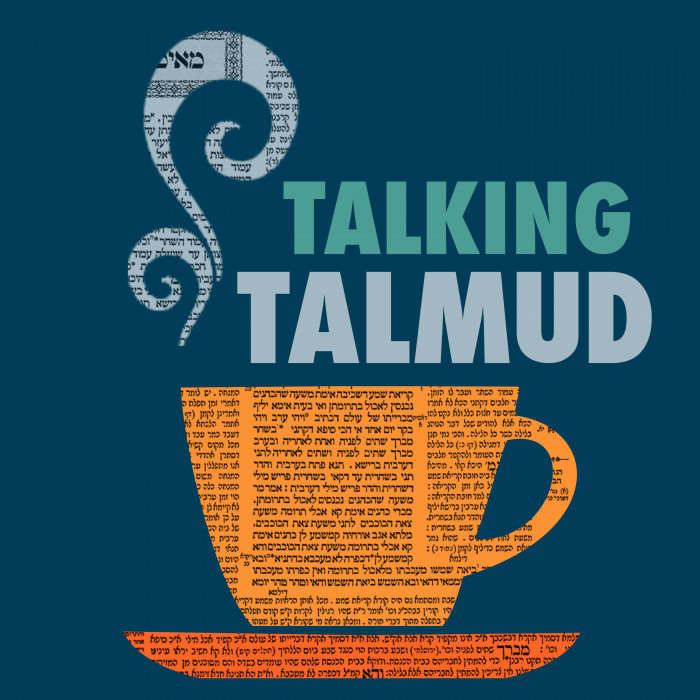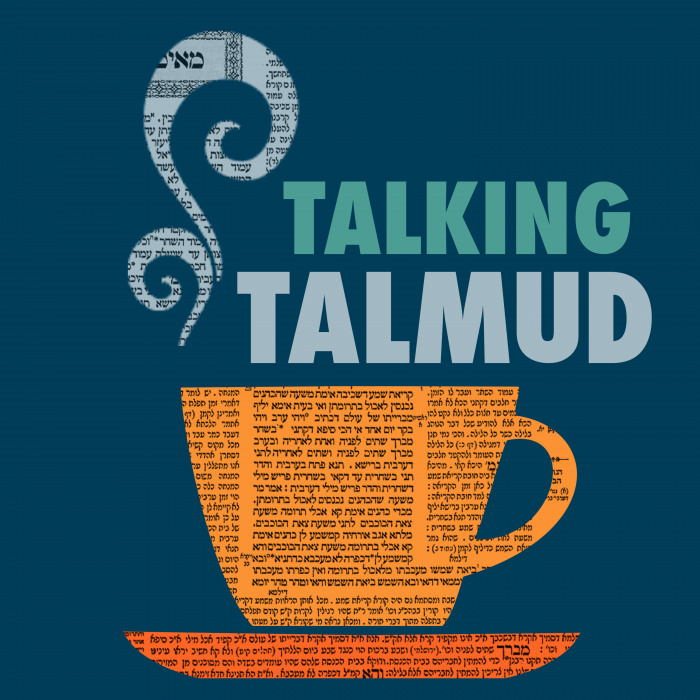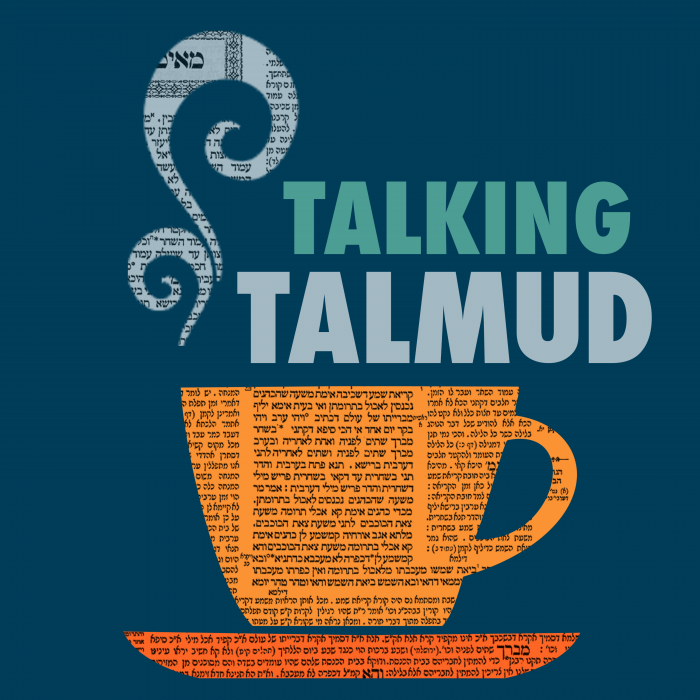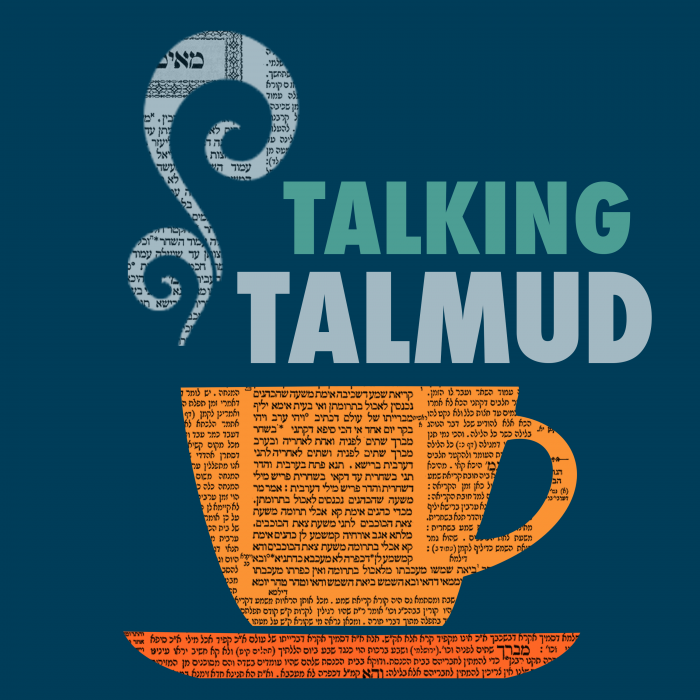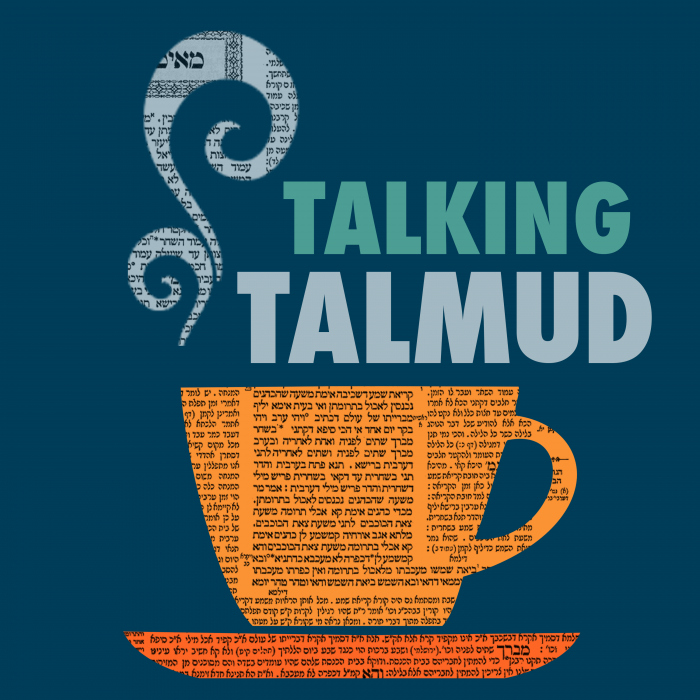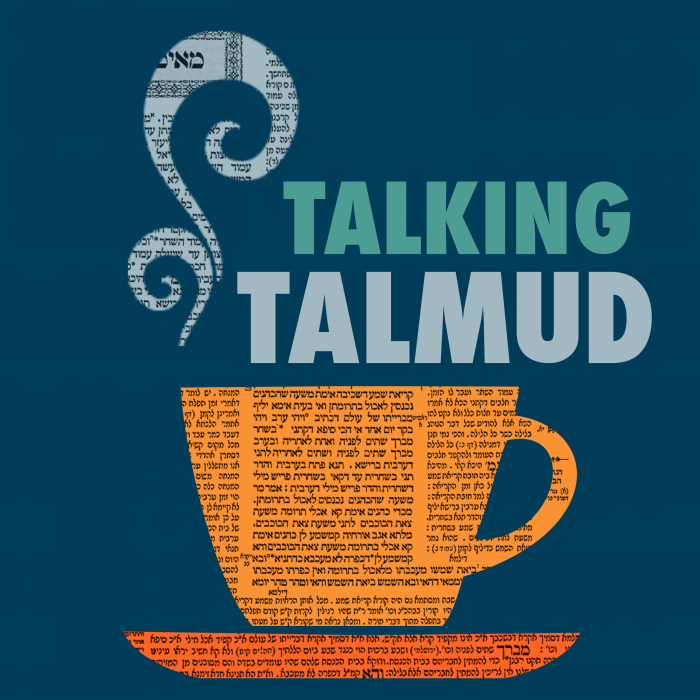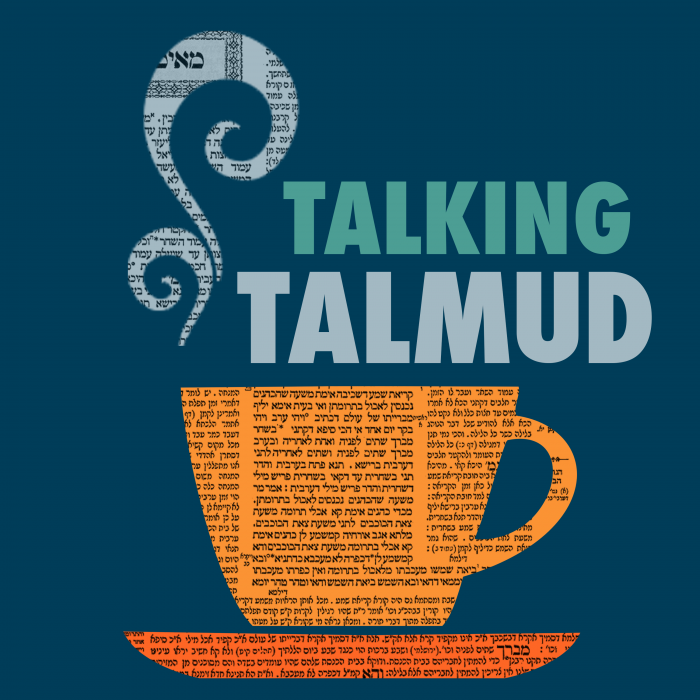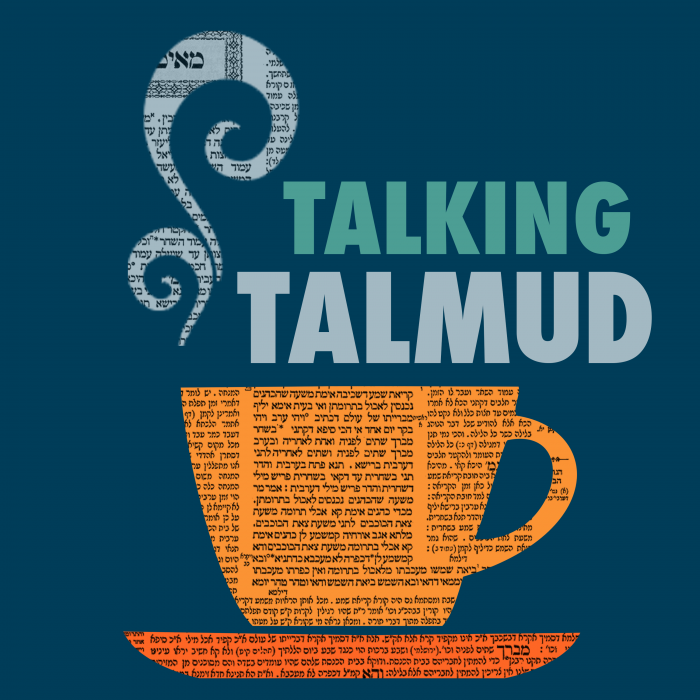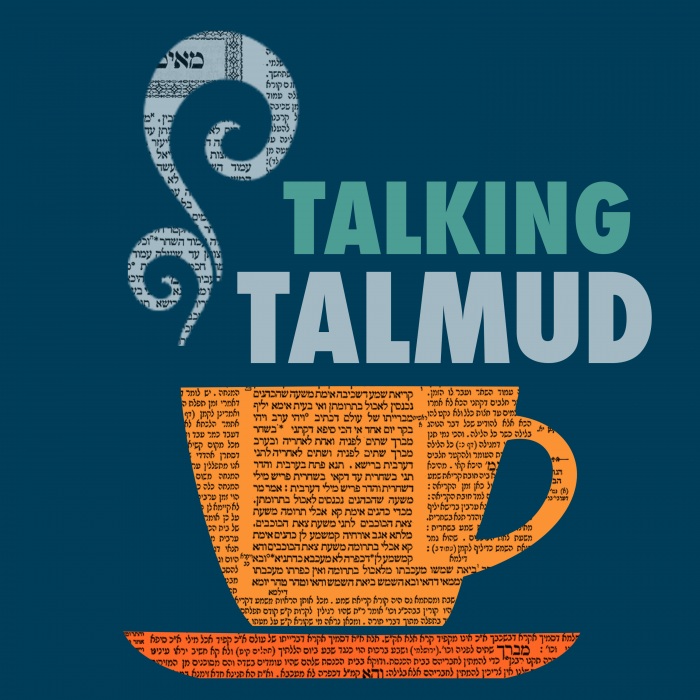Why do we say Shema at night in bed? How do we view suffering? What is “suffering out of love”? Is there a way to know id the suffering is because you sinned or is it suffering out of love. Why do good things happen to bad people? How can we comfort others who are suffering? Rabbi Yochanan lost 10 children and would show people his faith by carrying the bone of his tenth son. Is it OK to steal from one who stole?
This month’s learning is dedicated to the refuah shleima of our dear friend, Phyllis Hecht, גיטל פעשא בת מאשה רחל by all her many friends who love and admire her. Phyllis’ emuna, strength, and positivity are an inspiration.
Want to dedicate learning? Get started here:


Today’s daily daf tools:
This month’s learning is dedicated to the refuah shleima of our dear friend, Phyllis Hecht, גיטל פעשא בת מאשה רחל by all her many friends who love and admire her. Phyllis’ emuna, strength, and positivity are an inspiration.
Today’s daily daf tools:
Delve Deeper
Broaden your understanding of the topics on this daf with classes and podcasts from top women Talmud scholars.
New to Talmud?
Check out our resources designed to help you navigate a page of Talmud – and study at the pace, level and style that fits you.
The Hadran Women’s Tapestry
Meet the diverse women learning Gemara at Hadran and hear their stories.
Berakhot 5
אִם תַּלְמִיד חָכָם הוּא — אֵין צָרִיךְ. אָמַר אַבָּיֵי: אַף תַּלְמִיד חָכָם מִיבְּעֵי לֵיהּ לְמֵימַר חַד פְּסוּקָא דְרַחֲמֵי, כְּגוֹן: ״בְּיָדְךָ אַפְקִיד רוּחִי, פָּדִיתָה אוֹתִי ה׳ אֵל אֱמֶת״.
If one is a Torah scholar, he need not recite Shema on his bed since he is always engaged in the study of Torah and will likely fall asleep engrossed in matters of Torah. Abaye said: Even a Torah scholar must recite at least one verse of prayer, such as: “Into Your hand I trust my spirit; You have redeemed me, Lord, God of truth” (Psalms 31:6).
אָמַר רַבִּי לֵוִי בַּר חָמָא, אָמַר רַבִּי שִׁמְעוֹן בֶּן לָקִישׁ: לְעוֹלָם יַרְגִּיז אָדָם יֵצֶר טוֹב עַל יֵצֶר הָרַע, שֶׁנֶּאֱמַר: ״רִגְזוּ וְאַל תֶּחֱטָאוּ״ אִם נִצְּחוֹ — מוּטָב, וְאִם לָאו — יַעֲסוֹק בַּתּוֹרָה, שֶׁנֶּאֱמַר: ״אִמְרוּ בִלְבַבְכֶם״. אִם נִצְּחוֹ — מוּטָב, וְאִם לָאו — יִקְרָא קְרִיאַת שְׁמַע, שֶׁנֶּאֱמַר: ״עַל מִשְׁכַּבְכֶם״. אִם נִצְּחוֹ — מוּטָב, וְאִם לָאו — יִזְכּוֹר לוֹ יוֹם הַמִּיתָה, שֶׁנֶּאֱמַר: ״וְדֹמּוּ סֶלָה״.
Incidental to the verse, “Tremble, and do not sin,” the Gemara mentions that Rabbi Levi bar Ḥama said that Rabbi Shimon ben Lakish said: One should always incite his good inclination against his evil inclination, i.e., that one must constantly struggle so that his evil inclination does not lead him to transgression, as it is stated: “Tremble, and do not sin.”
If one succeeds and subdues his evil inclination, excellent, but if he does not succeed in subduing it, he should study Torah, as alluded to in the verse: “Say to your heart.”
If he subdues his evil inclination, excellent; if not, he should recite Shema, which contains the acceptance of the yoke of God, and the concept of reward and punishment, as it is stated in the verse: “Upon your bed,” which alludes to Shema, where it says: “When you lie down.”
If he subdues his evil inclination, excellent; if not, he should remind himself of the day of death, whose silence is alluded to in the continuation of the verse: “And be still, Selah.”
וְאָמַר רַבִּי לֵוִי בַּר חָמָא, אָמַר רַבִּי שִׁמְעוֹן בֶּן לָקִישׁ, מַאי דִּכְתִיב ״וְאֶתְּנָה לְךָ אֶת לֻחֹת הָאֶבֶן וְהַתּוֹרָה וְהַמִּצְוָה אֲשֶׁר כָּתַבְתִּי לְהוֹרֹתָם״. ״לֻחֹת״ — אֵלּוּ עֲשֶׂרֶת הַדִּבְּרוֹת, ״תּוֹרָה״ — זֶה מִקְרָא, ״וְהַמִּצְוָה״ — זוֹ מִשְׁנָה, ״אֲשֶׁר כָּתַבְתִּי״ — אֵלּוּ נְבִיאִים וּכְתוּבִים, ״לְהוֹרוֹתָם״ — זֶה תַּלְמוּד, מְלַמֵּד שֶׁכּוּלָּם נִתְּנוּ לְמֹשֶׁה מִסִּינַי.
And Rabbi Levi bar Ḥama said that Rabbi Shimon ben Lakish said: God said to Moses, “Ascend to me on the mountain and be there, and I will give you the stone tablets and the Torah and the mitzva that I have written that you may teach them” (Exodus 24:12), meaning that God revealed to Moses not only the Written Torah, but all of Torah, as it would be transmitted through the generations.
The “tablets” are the ten commandments that were written on the tablets of the Covenant,
the “Torah” is the five books of Moses.
The “mitzva” is the Mishna, which includes explanations for the mitzvot and how they are to be performed.
“That I have written” refers to the Prophets and Writings, written with divine inspiration.
“That you may teach them” refers to the Talmud, which explains the Mishna.
These explanations are the foundation for the rulings of practical halakha. This verse teaches that all aspects of Torah were given to Moses from Sinai.
אָמַר רַבִּי יִצְחָק: כׇּל הַקּוֹרֵא קְרִיאַת שְׁמַע עַל מִטָּתוֹ, כְּאִלּוּ אוֹחֵז חֶרֶב שֶׁל שְׁתֵּי פִיּוֹת בְּיָדוֹ. שֶׁנֶּאֱמַר: ״רוֹמְמוֹת אֵל בִּגְרוֹנָם וְחֶרֶב פִּיפִיּוֹת בְּיָדָם״, מַאי מַשְׁמַע? אָמַר מָר זוּטְרָא וְאִיתֵּימָא רַב אָשֵׁי: מֵרֵישָׁא דְעִנְיָנָא, דִּכְתִיב: ״יַעְלְזוּ חֲסִידִים בְּכָבוֹד יְרַנְּנוּ עַל מִשְׁכְּבוֹתָם״. וּכְתִיב בָּתְרֵיהּ: ״רוֹמְמוֹת אֵל בִּגְרוֹנָם וְחֶרֶב פִּיפִיּוֹת בְּיָדָם״.
The Gemara continues its treatment of the recitation of Shema upon one’s bed. Rabbi Yitzḥak said: Anyone who recites Shema on his bed, it is as if he holds a double-edged sword, guarding him from all evil, as it is stated: “High praises of God in their mouths, and a double-edged sword in their hands” (Psalms 149:6). The Gemara asks: From where is it inferred that this verse from Psalms refers to the recitation of Shema? Mar Zutra, and some say Rav Ashi, said: We derive it from the preceding verse, as it is written: “Let the pious exult in glory; let them joyously sing upon their beds.” The praise of God from one’s bed is the recitation of Shema. And it is written thereafter: “High praises of God in their mouths, and a double-edged sword in their hands.”
וְאָמַר רַבִּי יִצְחָק: כׇּל הַקּוֹרֵא קְרִיאַת שְׁמַע עַל מִטָּתוֹ — מַזִּיקִין בְּדֵילִין הֵימֶנּוּ. שֶׁנֶּאֱמַר: ״וּבְנֵי רֶשֶׁף יַגְבִּיהוּ עוּף״, וְאֵין ״עוּף״ אֶלָּא תּוֹרָה, שֶׁנֶּאֱמַר: ״הֲתָעִיף עֵינֶיךָ בּוֹ וְאֵינֶנּוּ״. וְאֵין ״רֶשֶׁף״ אֶלָּא מַזִּיקִין, שֶׁנֶּאֱמַר: ״מְזֵי רָעָב וּלְחֻמֵי רֶשֶׁף וְקֶטֶב מְרִירִי״.
And Rabbi Yitzḥak said: Anyone who recites Shema upon his bed, demons stay away from him. This is alluded to, as it is stated: “But man is born into trouble, and the sparks [reshef ] fly [uf ] upward” (Job 5:7). The verse is explained: The word fly [uf ] means nothing other than Torah, as Torah is difficult to grasp and easy to lose, like something that floats away, as it is stated: “Will you set your eyes upon it? It is gone; for riches certainly make themselves wings, like an eagle that flies into the heavens” (Proverbs 23:5). The word “sparks” means nothing other than demons, as it is stated: “Wasting of hunger, and the devouring of the sparks [reshef] and bitter destruction [ketev meriri], and the teeth of beasts I will send upon them, with the venom of crawling things of the dust” (Deuteronomy 32:24). Here we see reshef listed along with ketev meriri, both of which are understood by the Sages to be names of demons.
אָמַר רַבִּי שִׁמְעוֹן בֶּן לָקִישׁ: כׇּל הָעוֹסֵק בַּתּוֹרָה — יִסּוּרִין בְּדֵילִין הֵימֶנּוּ, שֶׁנֶּאֱמַר: ״וּבְנֵי רֶשֶׁף יַגְבִּיהוּ עוּף״. וְאֵין ״עוּף״ אֶלָּא תּוֹרָה, שֶׁנֶּאֱמַר ״הֲתָעִיף עֵינֶיךָ בּוֹ וְאֵינֶנּוּ״, וְאֵין ״רֶשֶׁף״ אֶלָּא יִסּוּרִין, שֶׁנֶּאֱמַר: ״מְזֵי רָעָב וּלְחֻמֵי רֶשֶׁף״.
Regarding this unclear verse, Rabbi Shimon ben Lakish said: If one engages in Torah study, suffering stays away from him, as it is stated: “And the sparks fly upward.” And fly means nothing other than Torah, as it is stated: “Will you set your eyes upon it? It is gone; and sparks means nothing other than suffering, as it is stated: “Wasting of hunger, and the devouring of the sparks,” equating devouring sparks with wasting hunger, as both are types of suffering. From here, we derive that through Torah, fly, one is able to distance himself, upward, from suffering, sparks.
אָמַר לֵיהּ רַבִּי יוֹחָנָן: הָא אֲפִילּוּ תִּינוֹקוֹת שֶׁל בֵּית רַבָּן, יוֹדְעִין אוֹתוֹ, שֶׁנֶּאֱמַר ״וַיֹּאמֶר אִם שָׁמוֹעַ תִּשְׁמַע לְקוֹל ה׳ אֱלֹהֶיךָ וְהַיָּשָׁר בְּעֵינָיו תַּעֲשֶׂה וְהַאֲזַנְתָּ לְמִצְוֹתָיו וְשָׁמַרְתָּ כׇּל חֻקָּיו כׇּל הַמַּחֲלָה אֲשֶׁר שַׂמְתִּי בְמִצְרַיִם לֹא אָשִׂים עָלֶיךָ כִּי אֲנִי ה׳ רוֹפְאֶךָ״. אֶלָּא: כׇּל שֶׁאֶפְשָׁר לוֹ לַעֲסוֹק בַּתּוֹרָה וְאֵינוֹ עוֹסֵק — הַקָּדוֹשׁ בָּרוּךְ הוּא מֵבִיא עָלָיו יִסּוּרִין מְכוֹעָרִין וְעוֹכְרִין אוֹתוֹ, שֶׁנֶּאֱמַר: ״נֶאֱלַמְתִּי דוּמִיָּה הֶחֱשֵׁיתִי מִטּוֹב וּכְאֵבִי נֶעְכָּר״, וְאֵין ״טוֹב״ אֶלָּא תּוֹרָה, שֶׁנֶּאֱמַר: ״כִּי לֶקַח טוֹב נָתַתִּי לָכֶם תּוֹרָתִי אַל תַּעֲזֹבוּ״.
Rabbi Yoḥanan said to him: Even schoolchildren, who learn only the Written Torah, know this concept as it is stated: “And He said you shall surely hear the voice of the Lord your God, and what is upright in His eyes you shall do and you shall listen to His mitzvot and guard His statutes; any disease that I have placed upon Egypt I will not place upon you for I am the Lord your healer” (Exodus 15:26). Rather, one must interpret the verse: Anyone who is able to engage in Torah study yet does not engage in that study, not only does the Holy One, Blessed be He, fail to protect him, but He brings upon him hideous afflictions, that embarrass him and trouble him, as it is stated: “I was mute with silence; I was silent from good, and my pain was strong” (Psalms 39:3). The word good means nothing other than Torah, as it is stated: “For I have given you a good portion, My Torah, do not abandon it” (Proverbs 4:2). The verse should be understood: “I have been silent from the study of Torah, and my pain was strong.”
אָמַר רַבִּי זֵירָא וְאִיתֵּימָא רַבִּי חֲנִינָא בַּר פָּפָּא: בֹּא וּרְאֵה שֶׁלֹּא כְּמִדַּת הַקָּדוֹשׁ בָּרוּךְ הוּא מִדַּת בָּשָׂר וָדָם. מִדַּת בָּשָׂר וָדָם, אָדָם מוֹכֵר חֵפֶץ לַחֲבֵירוֹ, מוֹכֵר עָצֵב, וְלוֹקֵחַ שָׂמֵחַ, אֲבָל הַקָּדוֹשׁ בָּרוּךְ הוּא אֵינוֹ כֵּן, נָתַן לָהֶם תּוֹרָה לְיִשְׂרָאֵל — וְשָׂמַח, שֶׁנֶּאֱמַר: ״כִּי לֶקַח טוֹב נָתַתִּי לָכֶם תּוֹרָתִי אַל תַּעֲזֹבוּ״.
With regard to the verse: “For I have given you a good portion,” Rabbi Zeira, and some say Rabbi Ḥanina bar Pappa, said: Come and see how the characteristics of the Holy One, Blessed be He, are unlike the characteristics of flesh and blood. It is characteristic of flesh and blood that when one sells an object to another person, the seller grieves the loss of his possession and the buyer rejoices. With regard to the Holy One, Blessed be He, however, this is not so. He gave the Torah to Israel and rejoiced, as it is stated: “For I have given you a good portion, My Torah, do not abandon it.” A good portion is understood as a good purchase; although God sold Torah to Israel, He rejoices in the sale and praises the object before its new owner (Rabbi Yoshiyahu Pinto).
אָמַר רָבָא, וְאִיתֵּימָא רַב חִסְדָּא: אִם רוֹאֶה אָדָם שֶׁיִּסּוּרִין בָּאִין עָלָיו — יְפַשְׁפֵּשׁ בְּמַעֲשָׂיו, שֶׁנֶּאֱמַר: ״נַחְפְּשָׂה דְרָכֵינוּ וְנַחְקֹרָה וְנָשׁוּבָה עַד ה׳״. פִּשְׁפֵּשׁ וְלֹא מָצָא — יִתְלֶה בְּבִטּוּל תּוֹרָה, שֶׁנֶּאֱמַר: ״אַשְׁרֵי הַגֶּבֶר אֲשֶׁר תְּיַסְּרֶנּוּ יָּהּ וּמִתּוֹרָתְךָ תְלַמְּדֶנּוּ״.
Previously, the Gemara discussed suffering that results from one’s transgressions. The Gemara shifts the focus and discusses suffering that does not result from one’s transgressions and the suffering of the righteous. Rava, and some say Rav Ḥisda, said: If a person sees that suffering has befallen him, he should examine his actions. Generally, suffering comes about as punishment for one’s transgressions, as it is stated: “We will search and examine our ways, and return to God” (Lamentations 3:40). If he examined his ways and found no transgression for which that suffering is appropriate, he may attribute his suffering to dereliction in the study of Torah. God punishes an individual for dereliction in the study of Torah in order to emphasize the gravity of the issue, as it is stated: “Happy is the man whom You punish, Lord, and teach out of Your law” (Psalms 94:12). This verse teaches us that his suffering will cause him to return to Your law.
וְאִם תָּלָה וְלֹא מָצָא — בְּיָדוּעַ שֶׁיִּסּוּרִין שֶׁל אַהֲבָה הֵם, שֶׁנֶּאֱמַר: ״כִּי אֶת אֲשֶׁר יֶאֱהַב ה׳ יוֹכִיחַ״.
And if he did attribute his suffering to dereliction in the study of Torah, and did not find this to be so, he may be confident that these are afflictions of love, as it is stated: “For whom the Lord loves, He rebukes, as does a father the son in whom he delights” (Proverbs 3:12).
אָמַר רָבָא, אָמַר רַב סְחוֹרָה, אָמַר רַב הוּנָא: כׇּל שֶׁהַקָּדוֹשׁ בָּרוּךְ הוּא חָפַץ בּוֹ — מְדַכְּאוֹ בְּיִסּוּרִין, שֶׁנֶּאֱמַר: ״וַה׳ חָפֵץ דַּכְּאוֹ הֶחֱלִי״.
So too, Rava said that Rav Seḥora said that Rav Huna said: Anyone in whom the Holy One, Blessed be He, delights, He oppresses him with suffering, as it is stated: “Yet in whom the Lord delights, He oppresses him with disease; to see if his soul would offer itself in guilt, that he might see his children, lengthen his days, and that the desire of the Lord might prosper by his hand” (Isaiah 53:10). This verse illustrates that in whomever God delights, he afflicts with illness.
יָכוֹל אֲפִילּוּ לֹא קִבְּלָם מֵאַהֲבָה? — תַּלְמוּד לוֹמַר: ״אִם תָּשִׂים אָשָׁם נַפְשׁוֹ״, מָה אָשָׁם לְדַעַת, אַף יִסּוּרִין — לְדַעַת.
I might have thought that God delights in him even if he does not accept his suffering with love. Therefore the verse teaches: “If his soul would offer itself in guilt.” Just as a guilt-offering is brought knowingly, as it is one of the sacrifices offered willingly, without coercion, so too his suffering must be accepted knowingly.
וְאִם קִבְּלָם מַה שְּׂכָרוֹ: ״יִרְאֶה זֶרַע יַאֲרִיךְ יָמִים״. וְלֹא עוֹד אֶלָּא שֶׁתַּלְמוּדוֹ מִתְקַיֵּים בְּיָדוֹ, שֶׁנֶּאֱמַר: ״וְחֵפֶץ ה׳ בְּיָדוֹ יִצְלָח״.
And if one accepts that suffering with love, what is his reward? As the second part of the verse states: “That he might see his children, lengthen his days.” Moreover, in addition to these earthly rewards, his Torah study will endure and his Torah study will be successful, as it is stated: “The purpose of the Lord,” the Torah, the revelation of God’s will, “might prosper by his hand.”
פְּלִיגִי בַּהּ רַבִּי יַעֲקֹב בַּר אִידִי וְרַבִּי אַחָא בַּר חֲנִינָא. חַד אָמַר: אֵלּוּ הֵם יִסּוּרִין שֶׁל אַהֲבָה — כׇּל שֶׁאֵין בָּהֶן בִּטּוּל תּוֹרָה, שֶׁנֶּאֱמַר: ״אַשְׁרֵי הַגֶּבֶר אֲשֶׁר תְּיַסְּרֶנּוּ יָּהּ וּמִתּוֹרָתְךָ תְלַמְּדֶנּוּ״.
With regard to the acceptance of affliction with love and what exactly this entails, Rabbi Ya’akov bar Idi and Rabbi Aḥa bar Ḥanina disagree. One of them said: Afflictions of love are any that do not cause dereliction in the study of Torah, i.e., any which do not afflict his body to the extent that he is unable to study Torah, as it is stated: “Happy is the man whom You afflict, Lord, and teach from Your Torah.” Afflictions of love are when You “teach from Your Torah.”
וְחַד אָמַר: אֵלּוּ הֵן יִסּוּרִין שֶׁל אַהֲבָה — כׇּל שֶׁאֵין בָּהֶן בִּטּוּל תְּפִלָּה, שֶׁנֶּאֱמַר: ״בָּרוּךְ אֱלֹהִים אֲשֶׁר לֹא הֵסִיר תְּפִלָּתִי וְחַסְדּוֹ מֵאִתִּי״.
And one said: Afflictions of love are any that do not cause dereliction in the recitation of prayer, as it is stated: “Blessed is God Who did not turn away my prayer” (Psalms 66:20). Despite his suffering, the afflicted is still capable of praying to God.
אָמַר לְהוּ רַבִּי אַבָּא בְּרֵיהּ דְּרַבִּי חִיָּיא בַּר אַבָּא, הָכִי אָמַר רַבִּי חִיָּיא בַּר אַבָּא, אָמַר רַבִּי יוֹחָנָן: אֵלּוּ וָאֵלּוּ יִסּוּרִין שֶׁל אַהֲבָה הֵן, שֶׁנֶּאֱמַר ״כִּי אֶת אֲשֶׁר יֶאֱהַב ה׳ יוֹכִיחַ״.
Rabbi Abba, son of Rabbi Ḥiyya bar Abba, said: My father, Rabbi Ḥiyya bar Abba, said that Rabbi Yoḥanan said as follows: Both, even afflictions that cause dereliction in the study of Torah and those that cause dereliction in the recitation of prayer, are afflictions of love, as with regard to one who suffers without transgression it is stated: “For whom He loves, He rebukes,” and inability to study Torah and to pray are among his afflictions.
אֶלָּא מַה תַּלְמוּד לוֹמַר ״וּמִתּוֹרָתְךָ תְלַמְּדֶנּוּ״ — אַל תִּקְרֵי ״תְלַמְּדֶנּוּ״, אֶלָּא תְלַמְּדֵנוּ. דָּבָר זֶה — מִתּוֹרָתְךָ תְּלַמְּדֵנוּ.
What then, is the meaning when the verse states: “And teach him from Your Torah”? Do not read and teach to mean and teach him, rather, and teach us. You teach us the value of this affliction from Your Torah.
קַל וָחוֹמֶר מִשֵּׁן וָעַיִן. מַה שֵּׁן וָעַיִן שֶׁהֵן אֶחָד מֵאֵבָרָיו שֶׁל אָדָם — עֶבֶד יוֹצֵא בָּהֶן לְחֵרוּת, יִסּוּרִין שֶׁמְּמָרְקִין כׇּל גּוּפוֹ שֶׁל אָדָם — עַל אַחַת כַּמָּה וְכַמָּה.
This is taught through an a fortiori inference from the law concerning the tooth and eye of a slave: The tooth and eye are each a single limb of a person and if his master damages either, the slave thereby obtains his freedom; suffering that cleanses a person’s entire body all the more so that one attains freedom, atonement, from his sins.
וְהַיְינוּ דְּרַבִּי שִׁמְעוֹן בֶּן לָקִישׁ, דְּאָמַר רַבִּי שִׁמְעוֹן בֶּן לָקִישׁ: נֶאֱמַר ״בְּרִית״ בְּמֶלַח, וְנֶאֱמַר ״בְּרִית״ בְּיִסּוּרִין, נֶאֱמַר ״בְּרִית״ בְּמֶלַח, דִּכְתִיב: ״וְלֹא תַשְׁבִּית מֶלַח בְּרִית״ וְנֶאֱמַר ״בְּרִית״ בְּיִסּוּרִין, דִּכְתִיב: ״אֵלֶּה דִבְרֵי הַבְּרִית״, מַה ״בְּרִית״ הָאָמוּר בְּמֶלַח — מֶלַח מְמַתֶּקֶת אֶת הַבָּשָׂר, אַף ״בְּרִית״ הָאָמוּר בְּיִסּוּרִין — יִסּוּרִין מְמָרְקִין כׇּל עֲוֹנוֹתָיו שֶׁל אָדָם.
And that is the statement of Rabbi Shimon ben Lakish, as Rabbi Shimon ben Lakish said: The word covenant is used with regard to salt, and the word covenant is used with regard to afflictions. The word covenant is used with regard to salt, as it is written: “The salt of the covenant with your God should not be excluded from your meal-offering; with all your sacrifices you must offer salt” (Leviticus 2:13). And the word covenant is used with regard to afflictions, as it is written: “These are the words of the covenant” (Deuteronomy 28:69). Just as, in the covenant mentioned with regard to salt, the salt sweetens the taste of the meat and renders it edible, so too in the covenant mentioned with regard to suffering, the suffering cleanses a person’s transgressions, purifying him for a more sublime existence.
תַּנְיָא, רַבִּי שִׁמְעוֹן בֶּן יוֹחַאי אוֹמֵר: שָׁלֹשׁ מַתָּנוֹת טוֹבוֹת נָתַן הַקָּדוֹשׁ בָּרוּךְ הוּא לְיִשְׂרָאֵל, וְכוּלָּן לֹא נְתָנָן אֶלָּא עַל יְדֵי יִסּוּרִין, אֵלּוּ הֵן: תּוֹרָה וְאֶרֶץ יִשְׂרָאֵל וְהָעוֹלָם הַבָּא.
Additionally, it was taught in a baraita with regard to affliction: Rabbi Shimon ben Yoḥai says: The Holy One, Blessed be He, gave Israel three precious gifts, all of which were given only by means of suffering, which purified Israel so that they may merit to receive them. These gifts are: Torah, Eretz Yisrael, and the World-to-Come.
תּוֹרָה מִנַּיִן — שֶׁנֶּאֱמַר: ״אַשְׁרֵי הַגֶּבֶר אֲשֶׁר תְּיַסְּרֶנּוּ יָּהּ וּמִתּוֹרָתְךָ תְלַמְּדֶנּוּ״.
From where is it derived that Torah is only acquired by means of suffering? As it is said: “Happy is the man whom You afflict, Lord,” after which it is said: “And teach from Your Torah.”
אֶרֶץ יִשְׂרָאֵל, דִּכְתִיב: ״כִּי כַּאֲשֶׁר יְיַסֵּר אִישׁ אֶת בְּנוֹ ה׳ אֱלֹהֶיךָ מְיַסְּרֶךָּ״, וּכְתִיב בָּתְרֵיהּ: ״כִּי ה׳ אֱלֹהֶיךָ מְבִיאֲךָ אֶל אֶרֶץ טוֹבָה״.
Eretz Yisrael, as it is written: “As a man rebukes his son, so the Lord your God rebukes you” (Deuteronomy 8:5), and it is written thereafter: “For the Lord your God will bring you to a good land” (Deuteronomy 8:7).
הָעוֹלָם הַבָּא, דִּכְתִיב: ״כִּי נֵר מִצְוָה וְתוֹרָה אוֹר וְדֶרֶךְ חַיִּים תּוֹכְחוֹת מוּסָר״.
The World-to-Come, as it is written: “For the mitzva is a lamp, the Torah is light, and the reproofs of instruction are the way of life” (Proverbs 6:23). One may arrive at the lamp of mitzva and the light of Torah that exists in the World-to-Come only by means of the reproofs of instruction in this world.
תָּנֵי תַּנָּא קַמֵּיהּ דְּרַבִּי יוֹחָנָן: כׇּל הָעוֹסֵק בְּתוֹרָה וּבִגְמִילוּת חֲסָדִים
A tanna taught the following baraita before Rabbi Yoḥanan: If one engages in Torah and acts of charity
וְקוֹבֵר אֶת בָּנָיו — מוֹחֲלִין לוֹ עַל כׇּל עֲוֹנוֹתָיו.
and buries his sons, all his transgressions are forgiven.
אֲמַר לֵיהּ רַבִּי יוֹחָנָן: בִּשְׁלָמָא תּוֹרָה וּגְמִילוּת חֲסָדִים, דִּכְתִיב: ״בְּחֶסֶד וֶאֱמֶת יְכֻפַּר עָוֹן״. ״חֶסֶד״ — זוֹ גְּמִילוּת חֲסָדִים, שֶׁנֶּאֱמַר: ״רוֹדֵף צְדָקָה וָחָסֶד יִמְצָא חַיִּים צְדָקָה וְכָבוֹד״. ״אֱמֶת״ — זוֹ תּוֹרָה, שֶׁנֶּאֱמַר: ״אֱמֶת קְנֵה וְאַל תִּמְכֹּר״. אֶלָּא ״קוֹבֵר אֶת בָּנָיו״ מִנַּיִן?
Rabbi Yoḥanan said to him: What is your source for this? Granted, if one engages in Torah and acts of charity, his transgressions are forgiven, as it is written: “With mercy and truth, iniquity is expiated” (Proverbs 16:6); mercy refers to acts of charity, as it is stated: “He who pursues charity and mercy finds life, charity and honor” (Proverbs 21:21), mercy and charity are listed together. And truth refers to Torah, as it is stated: “Buy truth and do not sell it; also wisdom, guidance and understanding” (Proverbs 23:23). However, from where is it derived that the transgressions of one who buries his sons are also forgiven?
תְּנָא לֵיהּ הַהוּא סָבָא, מִשּׁוּם רַבִּי שִׁמְעוֹן בֶּן יוֹחַאי: אָתְיָא, ״עָוֹן״ ״עָוֹן״. כְּתִיב הָכָא ״בְּחֶסֶד וֶאֱמֶת יְכֻפַּר עָוֹן״, וּכְתִיב הָתָם ״וּמְשַׁלֵּם עֲוֹן אָבוֹת אֶל חֵיק בְּנֵיהֶם״.
An answer was provided to Rabbi Yoḥanan when a certain elder taught him in the name of Rabbi Shimon bar Yoḥai: This conclusion is derived from a verbal analogy between the words iniquity and iniquity. Here, it is written: “With mercy and truth, iniquity is expiated,” and there it is written: “He repays the iniquity of the fathers onto the bosom of their children” (Jeremiah 32:18). Because he “repays the iniquity of the fathers onto the bosom of their children,” the father’s transgressions are forgiven.
אָמַר רַבִּי יוֹחָנָן: נְגָעִים וּבָנִים — אֵינָן יִסּוּרִין שֶׁל אַהֲבָה.
Rabbi Yoḥanan said: Leprosy and suffering due to children are not afflictions of love.
וּנְגָעִים לָא? וְהָתַנְיָא: כׇּל מִי שֶׁיֵּשׁ בּוֹ אֶחָד מֵאַרְבָּעָה מַרְאוֹת נְגָעִים הַלָּלוּ — אֵינָן אֶלָּא מִזְבַּח כַּפָּרָה!
The Gemara asks: Is leprosy not an affliction of love? Didn’t we learn in a baraita: If one has any of the four signs of leprosy (Leviticus 13) they are nothing other than an altar of atonement?
מִזְבַּח כַּפָּרָה — הָווּ, יִסּוּרִין שֶׁל אַהֲבָה — לָא הָווּ.
The Gemara answers: Although the signs of leprosy are an altar of atonement for one’s transgressions, they are not an affliction of love.
וְאִי בָּעֵית אֵימָא: הָא — לָן. וְהָא — לְהוּ.
And if you wish, say instead: This baraita, which says that leprosy is an affliction of love, is for us in Babylonia, because outside of Eretz Yisrael we are not as careful of the laws of ritual impurity, and one afflicted with leprosy may interact with others, mitigating his suffering. And that statement of Rabbi Yoḥanan, that leprosy is not an affliction of love, is for them in Eretz Yisrael, where they are exceedingly careful of the laws of ritual impurity and the suffering of a leper is great because he is banished from society (Rav Hai Gaon).
וְאִי בָּעֵית אֵימָא: הָא — בְּצִנְעָא, הָא — בְּפַרְהֶסְיָא.
And if you wish, say instead: This baraita, which says that leprosy is an affliction of love, refers to concealed leprosy that only strikes the concealed areas of one’s body. But that statement of Rabbi Yoḥanan refers to visible leprosy that causes those who see it to distance themselves from the leper.
וּבָנִים לָא?! הֵיכִי דָמֵי, אִילֵּימָא דַּהֲווֹ לְהוּ וּמֵתוּ, וְהָא אָמַר רַבִּי יוֹחָנָן, דֵּין גַּרְמָא דַּעֲשִׂירָאָה בִּיר? אֶלָּא הָא — דְּלָא הֲווֹ לֵיהּ כְּלָל. וְהָא — דַּהֲווֹ לֵיהּ וּמֵתוּ.
The Gemara continues to object: And suffering due to children is not an affliction of love? The Gemara clarifies: What are the circumstances? If you say that he had children and they died, didn’t Rabbi Yoḥanan himself say, while consoling the victim of a catastrophe: This is the bone of my tenth son? Rabbi Yoḥanan experienced the death of ten of his children, and he kept a small bone from his tenth child as a painful memorial. He would show that bone to others in order to console them, and since he showed it to them, the deaths of his children must certainly have been affliction of love. He consoled others by displaying that there is an element of intimacy with God that exists in that suffering (Tosafot). Why, then, would Rabbi Yoḥanan have said that suffering due to children is not afflictions of love? Rather, one must conclude that when Rabbi Yoḥanan said that those afflictions are not afflictions of love, he was speaking with regard to one who has no children, and when one had children who died, this could very well be considered afflictions of love.
רַבִּי חִיָּיא בַּר אַבָּא חֲלַשׁ. עָל לְגַבֵּיהּ רַבִּי יוֹחָנָן אֲמַר לֵיהּ: חֲבִיבִין עָלֶיךָ יִסּוּרִין? אֲמַר לֵיהּ: לֹא הֵן וְלֹא שְׂכָרָן. אֲמַר לֵיהּ: הַב לִי יְדָךְ. יְהַב לֵיהּ יְדֵיהּ, וְאוֹקְמֵיהּ.
The Gemara continues to address the issue of suffering and affliction: Rabbi Yoḥanan’s student, Rabbi Ḥiyya bar Abba, fell ill. Rabbi Yoḥanan entered to visit him, and said to him: Is your suffering dear to you? Do you desire to be ill and afflicted? Rabbi Ḥiyya said to him: I welcome neither this suffering nor its reward, as one who welcomes this suffering with love is rewarded. Rabbi Yoḥanan said to him: Give me your hand. Rabbi Ḥiyya bar Abba gave him his hand, and Rabbi Yoḥanan stood him up and restored him to health.
רַבִּי יוֹחָנָן חֲלַשׁ. עָל לְגַבֵּיהּ רַבִּי חֲנִינָא. אֲמַר לֵיהּ: חֲבִיבִין עָלֶיךָ יִסּוּרִין? אֲמַר לֵיהּ: לֹא הֵן וְלֹא שְׂכָרָן. אֲמַר לֵיהּ: הַב לִי יְדָךְ. יְהַב לֵיהּ יְדֵיהּ, וְאוֹקְמֵיהּ.
Similarly, Rabbi Yoḥanan fell ill. Rabbi Ḥanina entered to visit him, and said to him: Is your suffering dear to you? Rabbi Yoḥanan said to him: I welcome neither this suffering nor its reward. Rabbi Ḥanina said to him: Give me your hand. He gave him his hand, and Rabbi Ḥanina stood him up and restored him to health.
אַמַּאי, לוֹקִים רַבִּי יוֹחָנָן לְנַפְשֵׁיהּ?
The Gemara asks: Why did Rabbi Yoḥanan wait for Rabbi Ḥanina to restore him to health? If he was able to heal his student, let Rabbi Yoḥanan stand himself up.
אָמְרִי: אֵין חָבוּשׁ מַתִּיר עַצְמוֹ מִבֵּית הָאֲסוּרִים.
The Gemara answers, they say: A prisoner cannot generally free himself from prison, but depends on others to release him from his shackles.
רַבִּי אֶלְעָזָר חֲלַשׁ. עַל לְגַבֵּיהּ רַבִּי יוֹחָנָן. חֲזָא דַּהֲוָה קָא גָּנֵי בְּבֵית אָפֵל. גַּלְיֵיהּ לִדְרָעֵיהּ וּנְפַל נְהוֹרָא. חַזְיֵיהּ דַּהֲוָה קָא בָּכֵי רַבִּי אֶלְעָזָר. אֲמַר לֵיהּ: אַמַּאי קָא בָּכֵית? אִי מִשּׁוּם תּוֹרָה דְּלָא אַפֵּשְׁתְּ — שָׁנִינוּ: אֶחָד הַמַּרְבֶּה וְאֶחָד הַמַּמְעִיט, וּבִלְבַד שֶׁיְּכַוֵּין לִבּוֹ לַשָּׁמַיִם. וְאִי מִשּׁוּם מְזוֹנֵי — לֹא כׇּל אָדָם זוֹכֶה לִשְׁתֵּי שֻׁלְחָנוֹת. וְאִי מִשּׁוּם בְּנֵי — דֵּין גַּרְמָא דַּעֲשִׂירָאָה בִּיר.
The Gemara relates that Rabbi Elazar, another of Rabbi Yoḥanan’s students, fell ill. Rabbi Yoḥanan entered to visit him, and saw that he was lying in a dark room. Rabbi Yoḥanan exposed his arm, and light radiated from his flesh, filling the house. He saw that Rabbi Elazar was crying, and said to him: Why are you crying? Thinking that his crying was over the suffering that he endured throughout his life, Rabbi Yoḥanan attempted to comfort him: If you are weeping because you did not study as much Torah as you would have liked, we learned: One who brings a substantial sacrifice and one who brings a meager sacrifice have equal merit, as long as he directs his heart toward Heaven. If you are weeping because you lack sustenance and are unable to earn a livelihood, as Rabbi Elazar was, indeed, quite poor, not every person merits to eat off of two tables, one of wealth and one of Torah, so you need not bemoan the fact that you are not wealthy. If you are crying over children who have died, this is the bone of my tenth son, and suffering of that kind afflicts great people, and they are afflictions of love.
אֲמַר לֵיהּ: לְהַאי שׁוּפְרָא דְּבָלֵי בְּעַפְרָא קָא בָּכֵינָא. אֲמַר לֵיהּ: עַל דָּא וַדַּאי קָא בָּכֵית, וּבְכוֹ תַּרְוַיְיהוּ.
Rabbi Elazar said to Rabbi Yoḥanan: I am not crying over my misfortune, but rather, over this beauty of yours that will decompose in the earth, as Rabbi Yoḥanan’s beauty caused him to consider human mortality. Rabbi Yoḥanan said to him: Over this, it is certainly appropriate to weep. Both cried over the fleeting nature of beauty in the world and death that eventually overcomes all.
אַדְּהָכִי וְהָכִי אֲמַר לֵיהּ: חֲבִיבִין עָלֶיךָ יִסּוּרִין? אֲמַר לֵיהּ: לֹא הֵן וְלֹא שְׂכָרָן. אֲמַר לֵיהּ: הַב לִי יְדָךְ, יְהַב לֵיהּ יְדֵיהּ, וְאוֹקְמֵיהּ.
Meanwhile, Rabbi Yoḥanan said to him: Is your suffering dear to you? Rabbi Elazar said to him: I welcome neither this suffering nor its reward. Upon hearing this, Rabbi Yoḥanan said to him: Give me your hand. Rabbi Elazar gave him his hand, and Rabbi Yoḥanan stood him up and restored him to health.
רַב הוּנָא תְּקִיפוּ לֵיהּ אַרְבַּע מְאָה דַּנֵּי דְחַמְרָא. עָל לְגַבֵּיהּ רַב יְהוּדָה אֲחוּהּ דְּרַב סַלָּא חֲסִידָא וְרַבָּנַן, וְאָמְרִי לַהּ רַב אַדָּא בַּר אַהֲבָה וְרַבָּנַן, וַאֲמַרוּ לֵיהּ: לְעַיֵּין מָר בְּמִילֵיהּ. אֲמַר לְהוּ: וּמִי חֲשִׁידְנָא בְּעֵינַיְיכוּ? אֲמַרוּ לֵיהּ: מִי חֲשִׁיד קוּדְשָׁא בְּרִיךְ הוּא דְּעָבֵיד דִּינָא בְּלָא דִּינָא?!
The Gemara relates another story regarding acknowledgement of the justice of divine punishment: Four hundred barrels of Rav Huna’s wine fermented and turned into vinegar, causing him great financial loss.
Rav Yehuda, the brother of Rav Sala the Pious, along with the Sages, and some say Rav Adda bar Ahava, along with the Sages, entered to visit him, and said: The Master should examine his actions, as perhaps he committed a transgression for which he is being punished.
Rav Huna said to them: Am I suspect in your eyes? Have I committed a transgression on account of which you advise me to examine my behavior?
They said to him: Is the Holy One, Blessed be He, suspect that He exacts punishment without justice? Your loss was certainly just, and you must examine your conduct to find out why. The Sages were aware of a flaw in Rav Huna’s conduct, to which they alluded (Tosafot).
אֲמַר לְהוּ: אִי אִיכָּא מַאן דִּשְׁמִיעַ עֲלַי מִלְּתָא — לֵימָא. אֲמַרוּ לֵיהּ: הָכִי שְׁמִיעַ לָן, דְּלָא יָהֵיב מָר שְׁבִישָׁא לַאֲרִיסֵיהּ.
Rav Huna said to them: If someone has heard something improper that I have done, let him say so. They said to him: We have heard that the Master does not give a share of his grapevines to his tenant farmers. A tenant farmer is entitled to a portion of the crop grown on his landlord’s property, as well as a share of the vines planted during a given year.
אֲמַר לְהוּ: מִי קָא שָׁבֵיק לִי מִידֵּי מִינֵּיהּ? הָא קָא גָנֵיב לֵיהּ כּוּלֵּיהּ!
Rav Huna said to them: Does this tenant farmer leave me anything from the produce that he grows on my property? He steals it all. Consequently, in denying him his share of the grapevines I am simply recouping that which was stolen from me by this tenant farmer.
אֲמַרוּ לֵיהּ: הַיְינוּ דְאָמְרִי אִינָשֵׁי: ״בָּתַר גַּנָּבָא גְּנוֹב, וְטַעְמָא טְעֵים״. אֲמַר לְהוּ: קַבֵּילְנָא עָלַי דְּיָהֵיבְנָא לֵיהּ. אִיכָּא דְאָמְרִי: הֲדַר חַלָּא וַהֲוָה חַמְרָא. וְאִיכָּא דְאָמְרִי: אִייַּקַּר חַלָּא, וְאִיזְדְּבַן בִּדְמֵי דְחַמְרָא.
They said to him: That is the meaning of the folk saying: One who steals from a thief has a taste of theft. Despite the fact that the property was stolen to begin with, one nevertheless engages in theft. Although he did not violate a prohibition per se, it is still a form of theft, and one who is held to a higher standard than others will be punished for it.
He said to them: I accept upon myself to give my tenant farmer his portion in the future.
Thereupon, as a result of Rav Huna’s repentance, God restored his loss. Some say his vinegar turned back into wine, and some say that the price of vinegar rose and it was sold at the price of wine.
תַּנְיָא אַבָּא בִּנְיָמִין אוֹמֵר: עַל שְׁנֵי דְבָרִים הָיִיתִי מִצְטַעֵר כׇּל יָמַי — עַל תְּפִלָּתִי שֶׁתְּהֵא לִפְנֵי מִטָּתִי, וְעַל מִטָּתִי שֶׁתְּהֵא נְתוּנָה בֵּין צָפוֹן לְדָרוֹם. ״עַל תְּפִלָּתִי שֶׁתְּהֵא לִפְנֵי מִטָּתִי״, מַאי ״לִפְנֵי מִטָּתִי״? אִילֵּימָא ״לִפְנֵי מִטָּתִי״ מַמָּשׁ, וְהָאָמַר רַב יְהוּדָה, אָמַר רַב, וְאִיתֵּימָא רַבִּי יְהוֹשֻׁעַ בֶּן לֵוִי: מִנַּיִן לַמִּתְפַּלֵּל שֶׁלֹּא יְהֵא דָּבָר חוֹצֵץ בֵּינוֹ לְבֵין הַקִּיר — שֶׁנֶּאֱמַר: ״וַיַּסֵּב חִזְקִיָּהוּ פָּנָיו אֶל הַקִּיר וַיִּתְפַּלֵּל״? לָא תֵּימָא, ״לִפְנֵי מִטָּתִי״, אֶלָּא אֵימָא ״סָמוּךְ לְמִטָּתִי״.
The Gemara returns to the topic of prayer. It was taught in a baraita that the tanna Abba Binyamin would say: All of my life I have taken great pains with regard to two things: That my prayer should be before my bed and that my bed should be placed north to south. Abba Binyamin’s statement requires explanation. With regard to his statement: That my prayer should be before my bed, the Gemara asks, what does before my bed mean? If you say that it literally means that he would stand before his bed and pray, it is difficult, as Rav Yehuda said that Rav said, and some say that Rabbi Yehoshua ben Levi said: From where is it derived that one who prays should have nothing separating between him and the wall? As it is stated: “And Hezekiah turned to face the wall and prayed” (Isaiah 38:2), in order to facilitate his concentration during prayer. That being said, why would Abba Binyamin pray before his bed? Rather, do not say that before my bed refers to where he stood during prayer, but rather, say that he prayed adjacent to the time that he would retire to bed; he was careful to recite Shema and recite the evening prayer just before going to sleep (Rabbeinu Ḥananel).
״וְעַל מִטָּתִי שֶׁתְּהֵא נְתוּנָה בֵּין צָפוֹן לַדָּרוֹם״.
Abba Binyamin’s statement: And my bed should be placed north to south was in deference to the Divine Presence, which rests between east and west, the direction of the Temple; as the Holy of Holies was to the west, while the main entrance was to the east. Therefore, the Sages were careful not to perform actions inconsistent with that sanctity while facing east to west; and, therefore, Abba Binyamin was careful not to sleep in a bed that faced east to west.
דְּאָמַר רַבִּי חָמָא בְּרַבִּי חֲנִינָא, אָמַר רַבִּי יִצְחָק: כׇּל הַנּוֹתֵן מִטָּתוֹ בֵּין צָפוֹן לְדָרוֹם הָוְיִין לֵיהּ בָּנִים זְכָרִים, שֶׁנֶּאֱמַר: ״וּצְפוּנְךָ תְּמַלֵּא בִטְנָם יִשְׂבְּעוּ בָנִים״.
In praise of that stringency, the Sages added that Rabbi Ḥama said that Rabbi Ḥanina said that Rabbi Yitzḥak said: One who places his bed facing north to south will be rewarded with male children, as it is stated: “And whose belly You fill with Your treasure [utzfunekha], who have sons in plenty and leave their abundance to their babies” (Psalms 17:14). This verse indicates that one who sets his bed facing north will be rewarded with sons in plenty, as north [tzafon] is etymologically similar to Your treasure [tzfunekha].
רַב נַחְמָן בַּר יִצְחָק אָמַר: אַף אֵין אִשְׁתּוֹ מַפֶּלֶת נְפָלִים. כְּתִיב הָכָא: ״וּצְפוּנְךָ תְּמַלֵּא בִּטְנָם״, וּכְתִיב הָתָם: ״וַיִּמְלְאוּ יָמֶיהָ לָלֶדֶת וְהִנֵּה תוֹמִים בְּבִטְנָהּ״.
Rav Naḥman bar Yitzḥak said: Moreover, his wife will not miscarry. From where do we derive this? It is written here: “And whose belly You fill [temaleh] with Your treasure,” and it is written there, concerning Rebecca’s pregnancy: “And her time to give birth was fulfilled [vayimle’u] and there were twins in her belly” (Genesis 25:24), consequently: You fill with Your treasure refers to a pregnancy that proceeds without complication.
תַּנְיָא. אַבָּא בִּנְיָמִין אוֹמֵר: שְׁנַיִם שֶׁנִּכְנְסוּ לְהִתְפַּלֵּל. וְקָדַם אֶחָד מֵהֶם לְהִתְפַּלֵּל, וְלֹא הִמְתִּין אֶת חֲבֵרוֹ. וְיָצָא. טוֹרְפִין לוֹ תְּפִלָּתוֹ בְּפָנָיו, שֶׁנֶּאֱמַר: ״טֹרֵף נַפְשׁוֹ בְּאַפּוֹ הַלְמַעַנְךָ תֵּעָזַב אָרֶץ״.
Another of Abba Binyamin’s statements with regard to the laws of prayer was taught in a baraita: Abba Binyamin says: If two people enter a synagogue outside of the city in order to pray, and one began praying before the other and did not wait for the other person to complete his prayer, and left him alone in the synagogue, his prayer is thrown back in his face. Because he left the other person alone and caused him to be distracted during his prayer, his own prayer is thrown back in his face, as it is stated: “You who throw your soul in your face, for your sake will the earth be forsaken? The Rock will be moved from its place” (Job 18:4). This verse indicates that one who left the other person alone effectively causes his soul, as prayer is the outpouring of the soul before God, to be thrown in his face. God says to that person: For your sake, do you think because you left, the earth will be forsaken, that God will leave the world and the prayer of the other person will go unheard?
וְלֹא עוֹד, אֶלָּא שֶׁגּוֹרֵם לַשְּׁכִינָה שֶׁתִּסְתַּלֵּק מִיִּשְׂרָאֵל, שֶׁנֶּאֱמַר: ״וְיֶעְתַּק צוּר מִמְקֹמוֹ״. וְאֵין ״צוּר״ אֶלָּא הַקָּדוֹשׁ בָּרוּךְ הוּא, שֶׁנֶּאֱמַר: צוּר יְלָדְךָ תֶּשִׁי״.
Not only that, but it causes the Divine Presence to remove itself from Israel, as it is stated in the continuation of the verse: “The Rock will be moved from its place.” The rock, God, is forced to remove His presence. And Rock means nothing other than the Holy One, Blessed be He, as it is stated: “Of the Rock that gave birth to you, you have been unmindful, and you have forgotten God Who bore you” (Deuteronomy 32:18).
וְאִם הִמְתִּין לוֹ מַה שְּׂכָרוֹ?
And if he waits for him in the synagogue, what is his reward? Is his reward proportionate to the punishment received by one who failed to do so?



